![]()
In February, photographer Alex John Beck travelled to refugee camps in Lebanon and Jordan to capture a powerful portrait project. In a series of diptychs, he pairs refugee or family of refugees with their most treasured smartphone photography, and the story of that photo.
There is no way to truly capture the struggle and heartbreak of becoming a refugee—the harrowing journeys they endure, carrying only their most treasured and/or useful items with them, and leaving everything else behind. And yet somehow, Beck’s series, produced in association with the Oxfam International charitable organization, comes close.
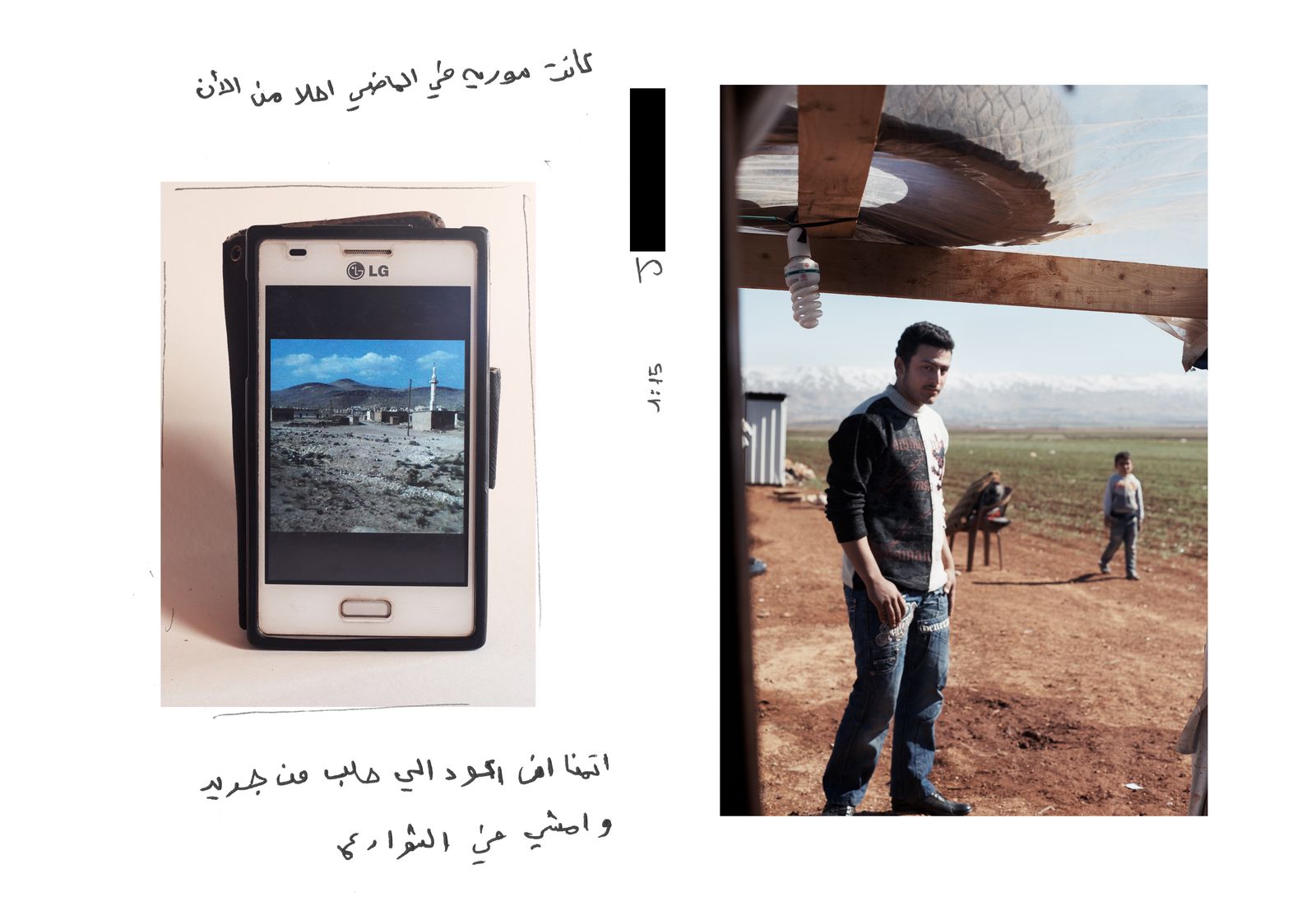
Beqaa Valley, Lebanon, looking toward Syria. A photo from Aleppo, where he’s from. Joram (16). A cousin passed by his home a month after he fled, and it was completely destroyed, along with the houses of his neighbors and friends.
The smartphone is our modern-day “window of the soul,” and Beck uses the photos on these phones to highlight the most important, painful, and powerful pieces of each portrait subject’s experience.
Some of the more poignant smartphone photos are those of family members who were left behind, lost forever, or, in one happy example, made it to asylum and safety in Germany. And alongside each photograph, a story or statement, written in the subjects’ own hand. This last part was very important to Beck.
“I am naive most of the time about these situations, as the viewer, so I want the subject to present the material to me,” he told The Verge. “I think handwriting itself—the way people hesitate, the way they misspell things, cross things out, the way other people come in and fill in things—I think handwriting says more than a portrait I take ever could, in some ways.”
Scroll down to see a selection of images from the series:
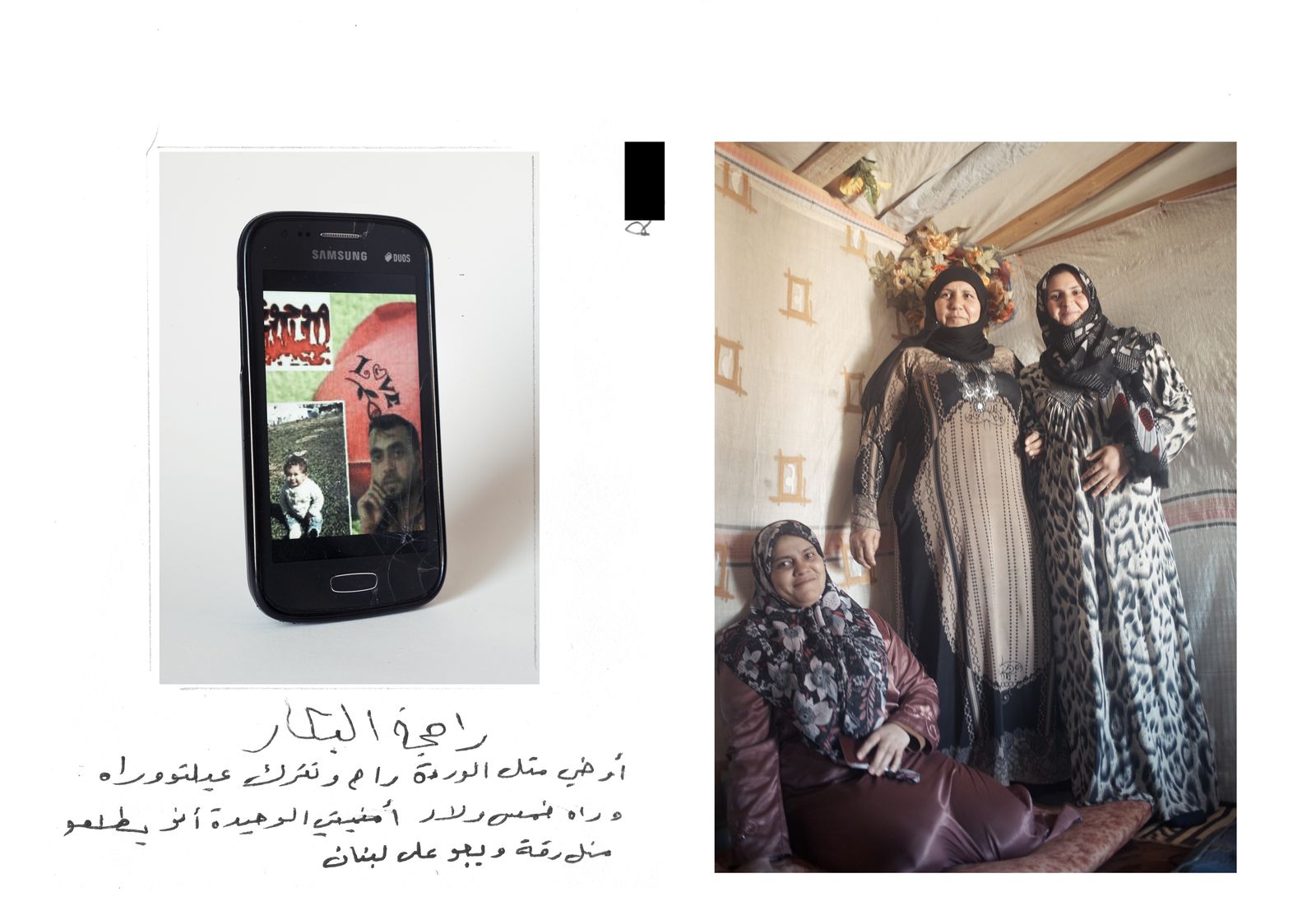
Beqaa Valley, Lebanon. A photograph of her brother, killed in Raqqa.
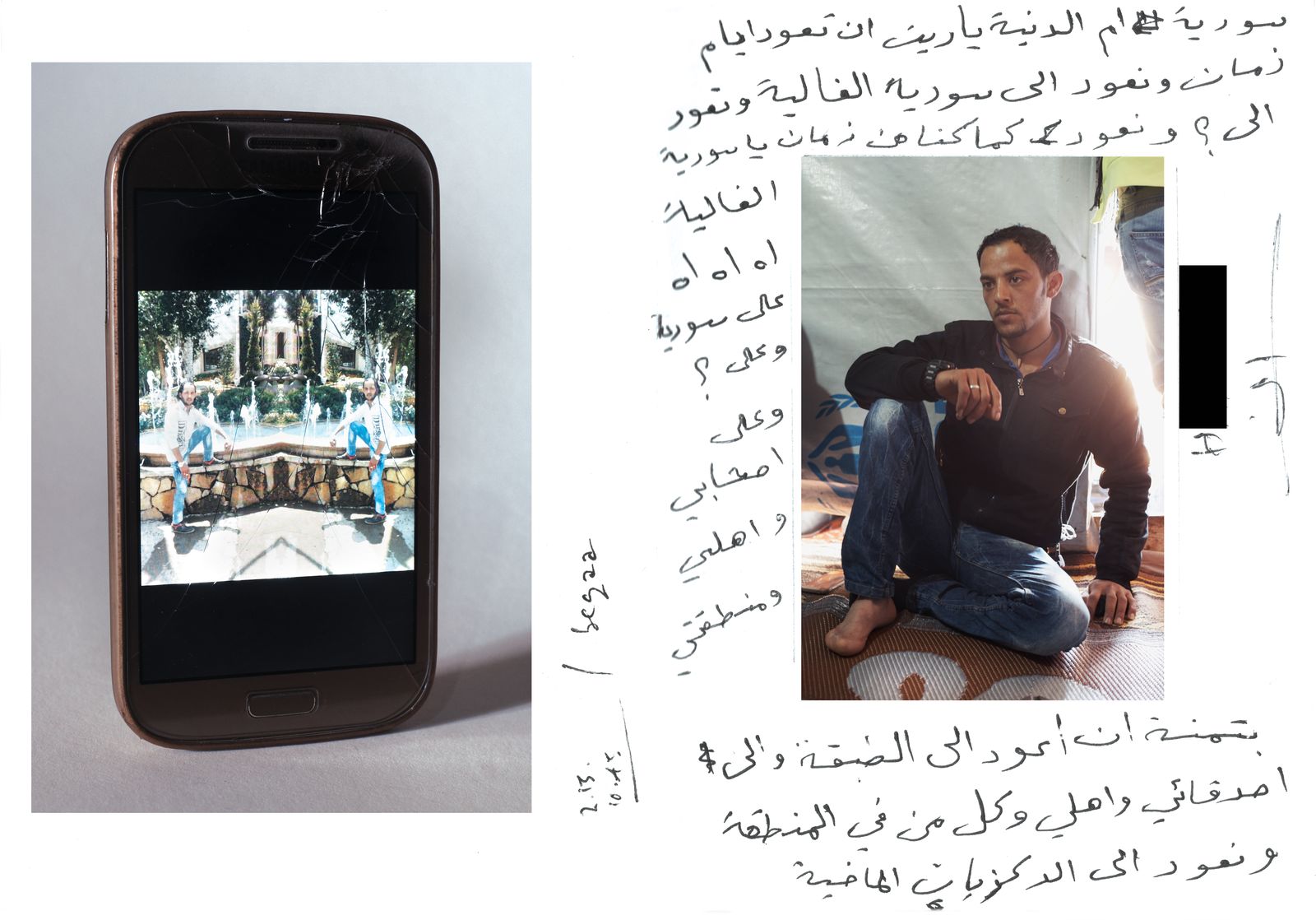
A tent in the Beqaa valley Lebanon. He tells us he was called to join the army, but was luckily smuggled across the border. He lost his toes to a bomb on the road. Haydar* from Raqaa — was engaged a few years ago but he’s no longer sure where his fiancé is living. He lost touch with her when he was trying to leave and doesn’t have a way of reaching her. At the time of this photograph he was considering making his way to Europe by boat, maybe trying to get to Turkey one way or another.
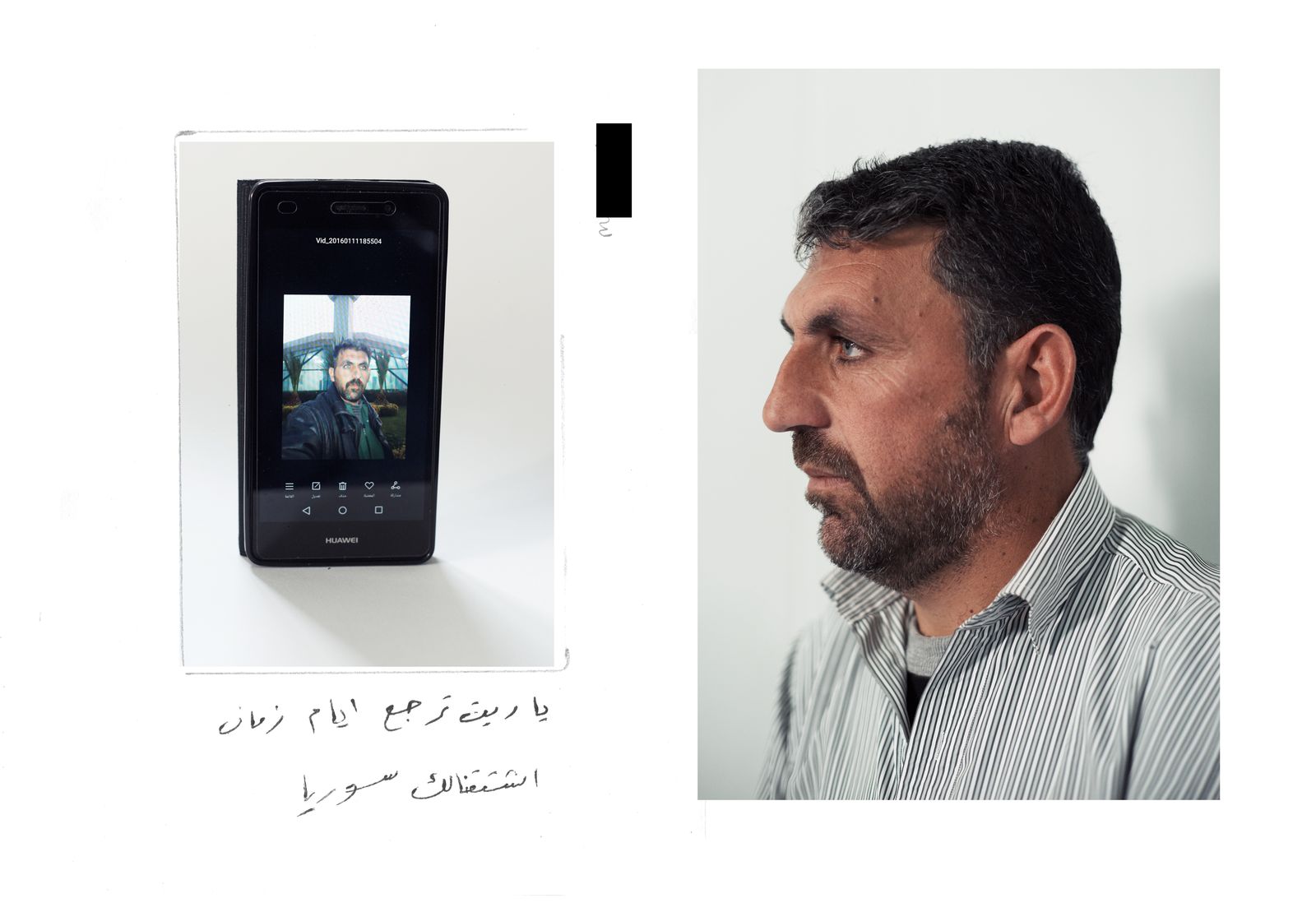
M, several years ago, outside his workplace.
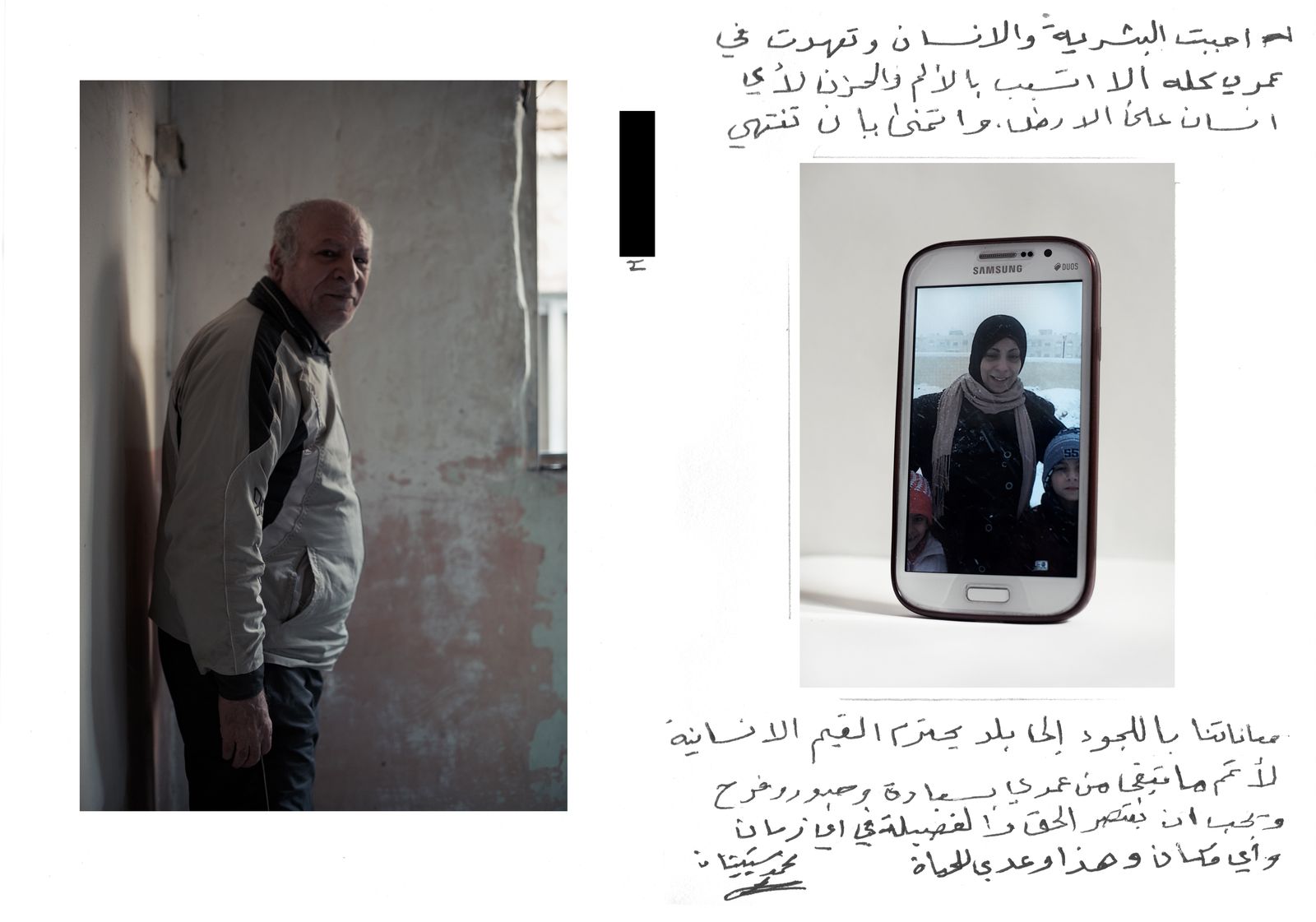
Shatilla, Beirut. A photograph of his daughter and grandkids, taken on their arrival in Denmark by her husband. At one time in his life, Hamad taught history and geography. They were living in Yarmouk before they fled in 2013.
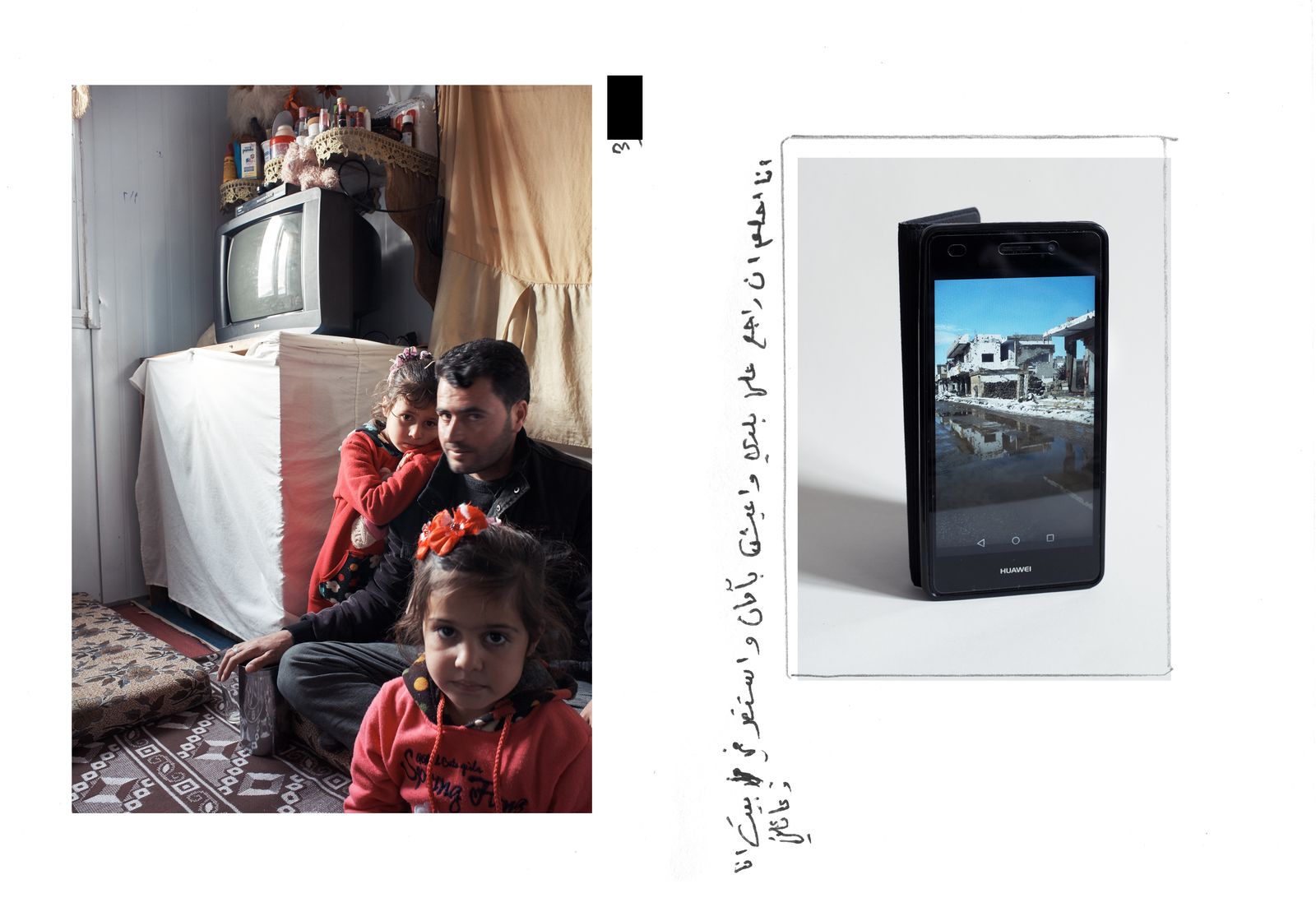
Zaatari Camp, Jordan.
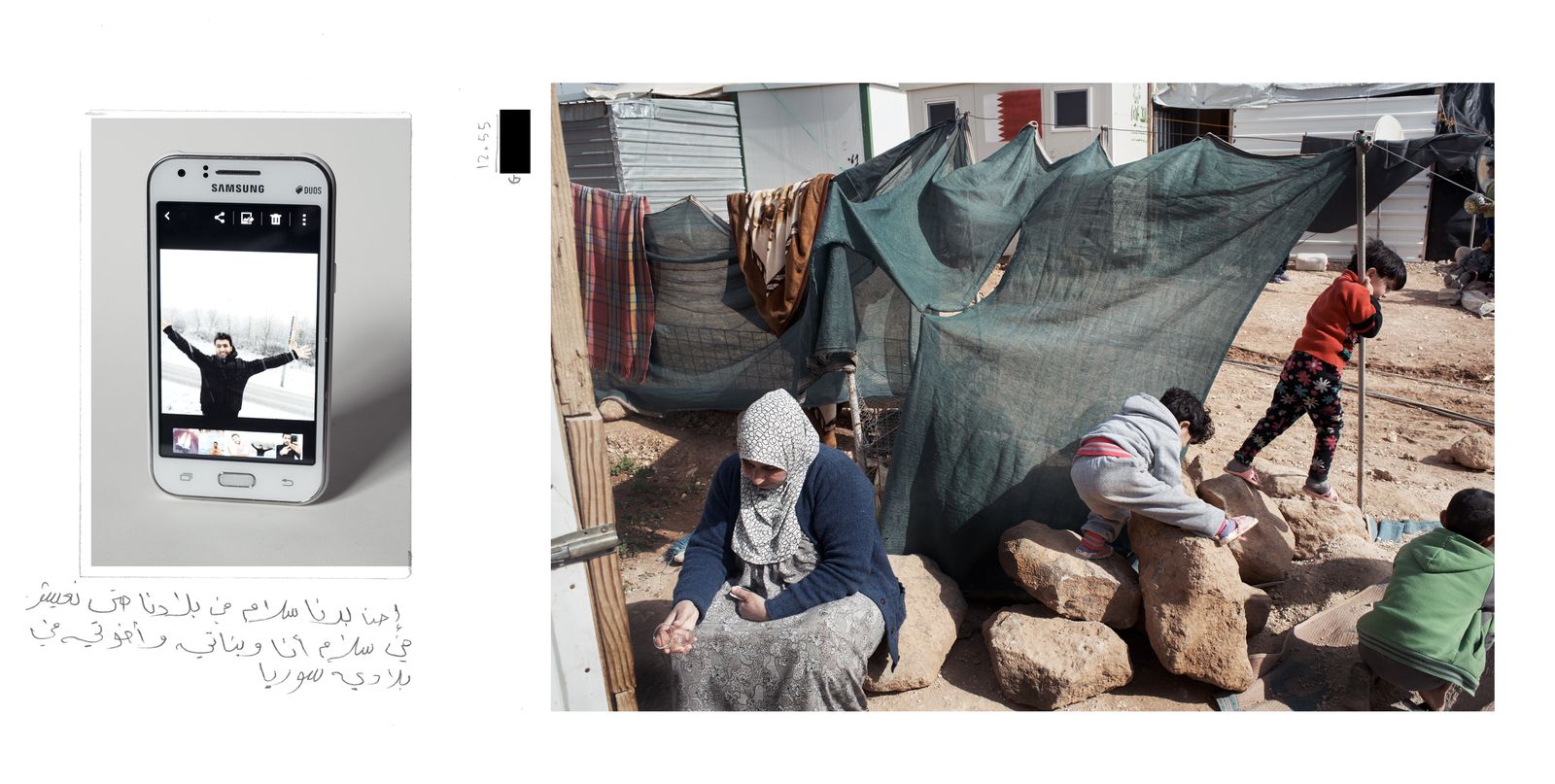
Zaatari Refugee Camp, northern Jordan. A picture sent by her 24-year-old son, Ghofran, on his arrival in Germany. He was working in a bakery when this picture was taken. “I didn’t hear from him for a week when he was on his way to Germany. A week. It is bittersweet because he’s far away, but he’s safe.”
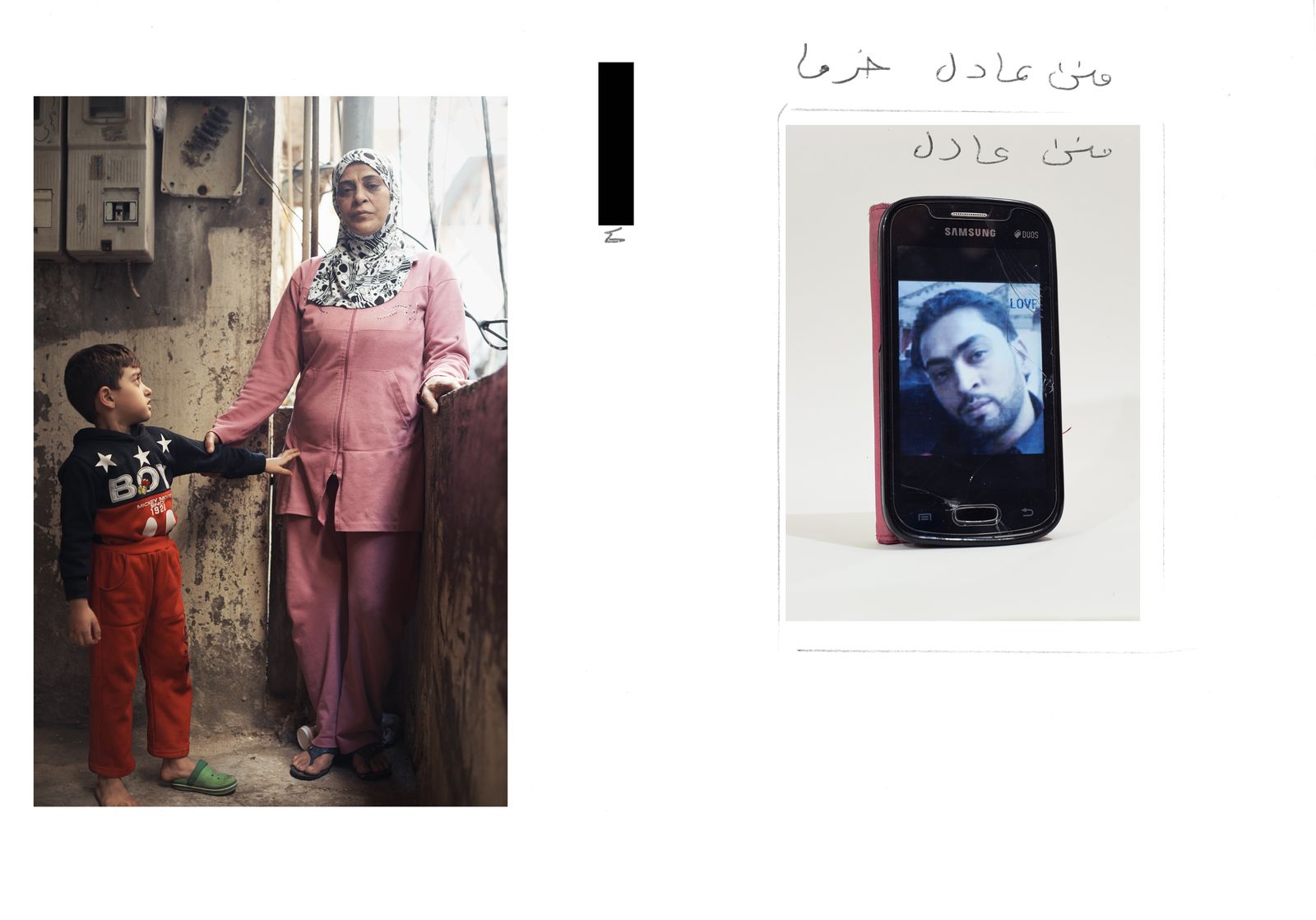
Shatilla, Beirut. A picture sent by her elder son, who was killed by bombs in Yarmouk, a Palestinian refugee camp in the suburbs of Damascus.
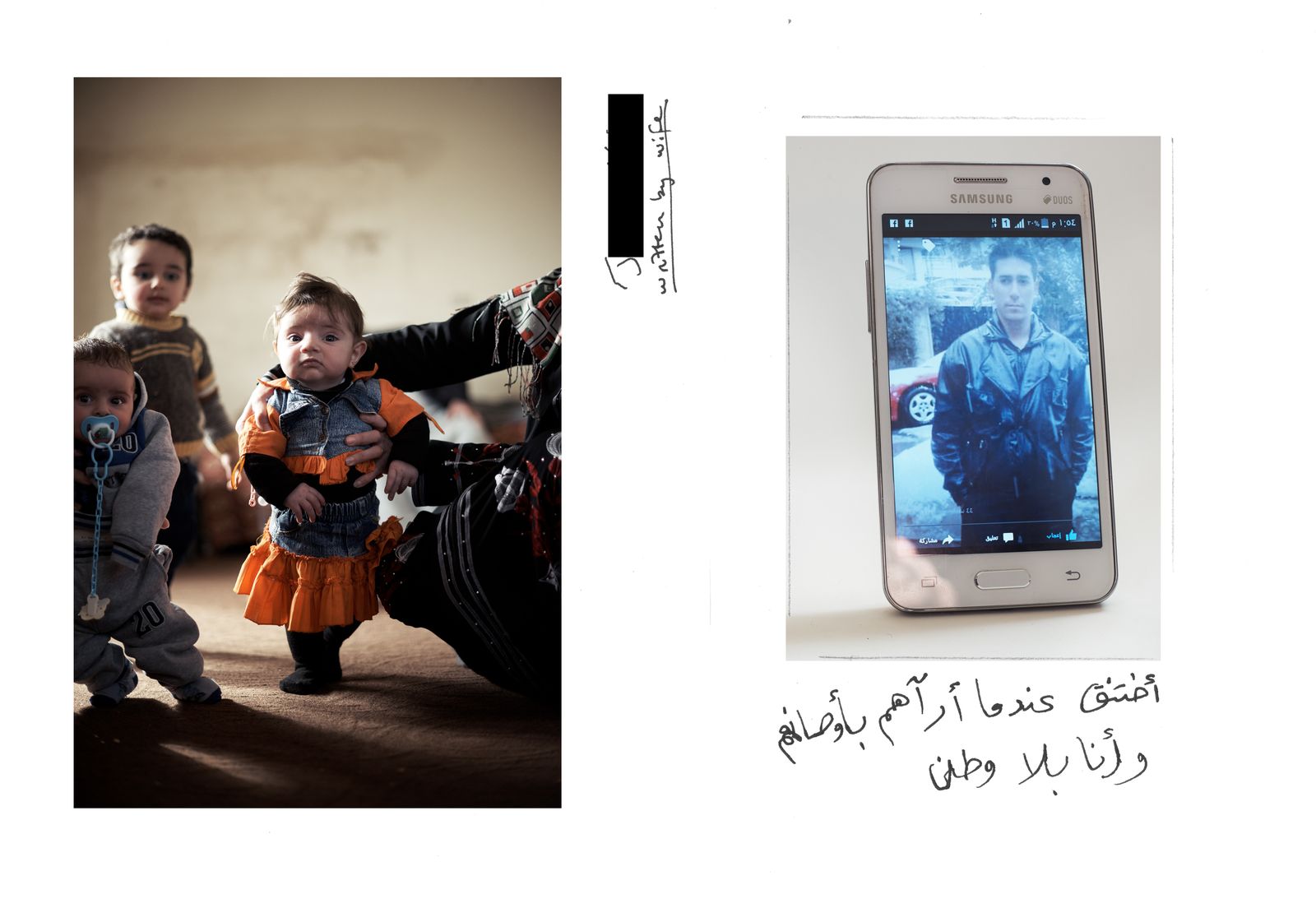
J’s wife prefers to not be photographed, but was more than happy for us to photograph her daughter instead. She tells us a story of how, before they left, the regime called them to the mosque. They put the men in belly dancing clothes, played music, and made them dance in front of their wives, before killing them. “With a machine gun,” she says. This photo is of a family member jailed by the regime for three years before being released — he was anxiously trying to find a way out of Syria. “He had cigarette burns, and was beaten very, very badly. We think he was electrocuted. We saw the pictures,” she told us.
You can see more photos from this poignant project on Alex’s website here. And if you’d like to see some of the other projects Alex is working on, be sure to visit him on his website or give him a follow on Instagram.
(via The Verge)
Image credits: All photographs by Alex John Beck and used with permission.





